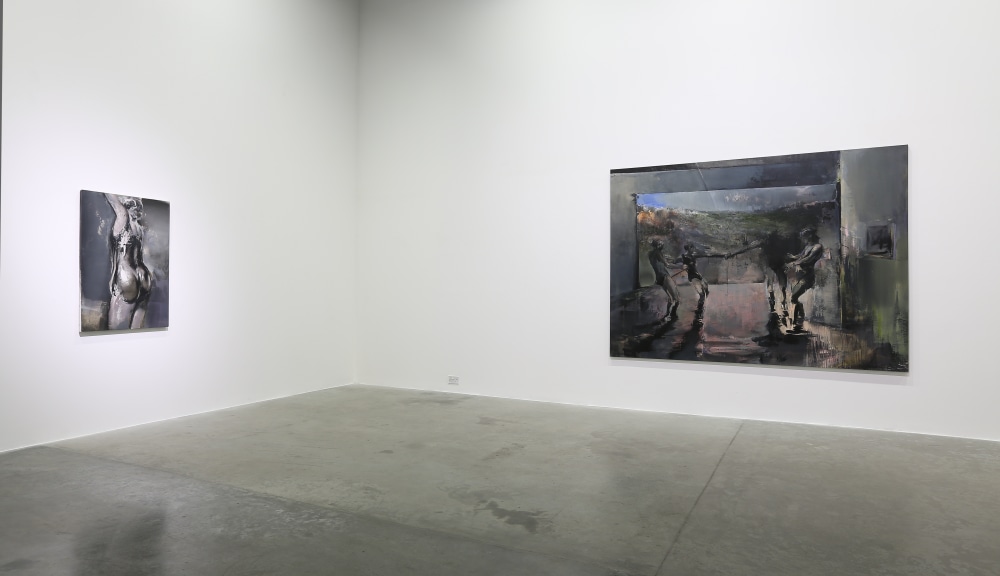
King Give Us Soldiers, Zsolt Bodoni, Installation view at Green Art Gallery, 2013
Art Dubai 2013 participant Green Art Gallery has a slate of artists curated for the closing stages of this winter, and none more so compelling on a global scale than Zsolt Bodoni’s “King Give Us Soldiers”. Green Art Gallery already managed to provoke a lot of thought with Shadi Habib Allah’s work for the second half of last year, and it is Bodoni who is now getting the treatment from the boutique gallery until the beginning of March.
In his narrative, Bodoni doesn’t so much challenge as he does encapsulate our respective ideas of what it means to earn and serve power and progress currently.
Picking this definitive 2013 edition of Art Dubai, as the latest contemporary art locale posting record-breaking sales numbers and stepping into the maturing power vacuum of older locations like New York, couldn’t be a more appropriate playground with which to explore such questions. But is it a broad shot across the bows to its own attendees for Green Art Gallery Press to be labelling such a mindset as “indifferent naivete?”
The King Give Us Soldiers exhibition marks Zsolt Bodoni’s debut in the UAE region, already telling you everything you need to know about the power shift to the Middle Eastern circuit where artists now see it as a region imperative to break onto new ground. Bodoni himself is Hungarian-educated in the arts, after shifting to Budapest from his native Romania where he was born in 1975.
Such an upbringing in the Eastern bloc, that witnessed some of the most frenetic cultural changes imposed upon it, gives Bodoni more than enough artistic license to be canvassing his feelings on power structures.
Prior to his Dubai debut, Bodoni has already done solo exhibitions across Europe and America in all the traditional capitals. His style has been characterized by large complex canvases and, above all, the fundamental “fish out of water” scenario of placing innocent characters within a heavily industrialist and atmospheric backgrounds.
It isn’t too far removed from being the equivalent of what British artist John Davies brought to contemporary photography, except without all the British sense of irony in defeat. Instead, Bodoni features post-WWII postcards and imagery heavily into the King Gives Us Soldiers narrative, with enough artistic interpretation to present this story in a modern context.
It is a mindset that Green Art Gallery Press labels “indifferent naivete”.
Bodoni traces the distinction between those who chase power and those who find comfort in serving power. In such a transition period as the world markets (including creative markets) are today, the question is quaint enough to invite all sorts of pressure and discussion.
Finding comfort in playing our position as contemporary art collectors right now would be to find comfort in uncertainty and speculation rather than solid ground. Almost at a cross purpose, Art Dubai itself has the opportunity to consolidate its position on the art map and break in a new era of sustained sales results and discussion, following on from the resounding success the UAE enjoyed amongst wider art collecting circles in 2012.
That certainty might be a little too much discomfort for some, and just enough edge to see what comes out of the other end of Art Dubai. Against all odds, the UAE continues to be a place where freedom of discussion excels through pioneering art in such a fashion no collector can find elsewhere in the world currently.
Whatever the eventual outcome, Green Art Gallery has curated enough bold-thinking artists to ensure it will be a contributor to that narrative. And, if the power games and pretense of real life collecting don’t interest you, at least you’ll be guaranteed to see a visually moving exhibition from Bodoni himself.